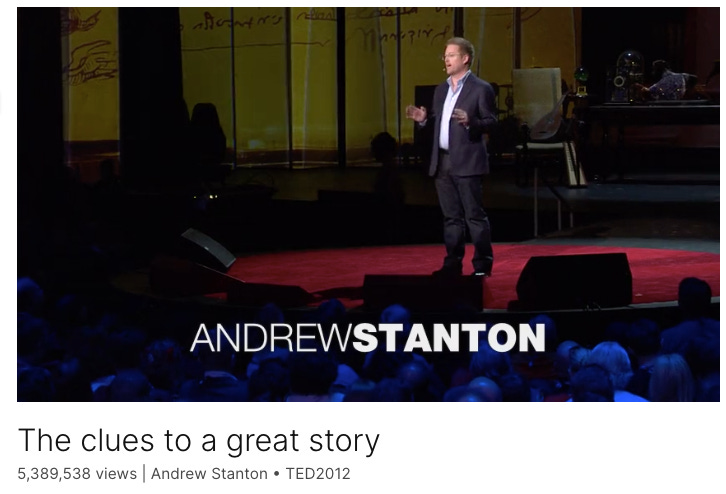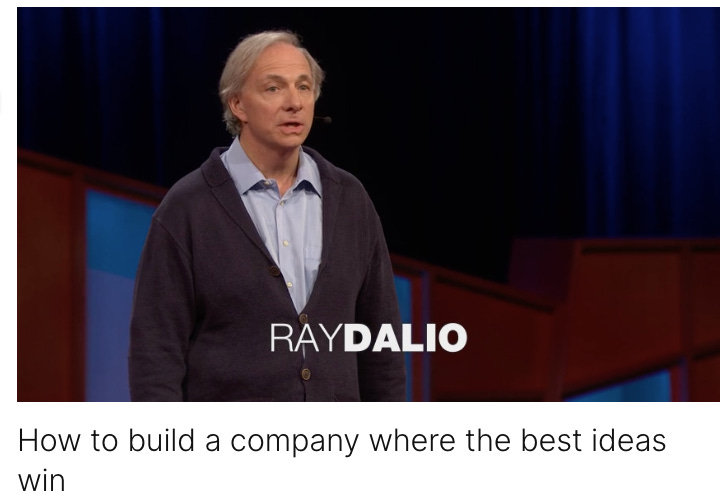Product Marketing | TED Talks to watch (2/3)
and learn from the change makers in the world
Whether you are in product marketing or not, these TED talks will inspire you to be a changemaker, to challenge the status quo and ask why in every step of your career.
Sharing the next 4 TED Talk videos (5-8) as promised in the first post (1/3) which covers TED Talks 1-4.
1. Introduction
Simon Sinek: Start with why - How great leaders inspire action | TEDx
2. Research
Sheena Iyengar: The art of choosing | TEDx
3. Pricing
Casey Brown: Know your worth | TEDx
4. OKRs
John Doerr: Why the secret to success is setting the right goals | TEDx
5. Personas
We live and breathe personas in product marketing - our love for our customers and being their guide is what keeps us alive.
What stories do we tell today about our customers? Is there more than one angle or perspective to explore?
[clip 1] 4:01 - 5:00
When I left Nigeria to go to university in the United States, I was 19. My American roommate was shocked by me. She asked where I had learned to speak English so well, and was confused when I said that Nigeria happened to have English as its official language. She asked if she could listen to what she called my "tribal music," and was consequently very disappointed when I produced my tape of Mariah Carey.
04:30 She assumed that I did not know how to use a stove.
What struck me was this: She had felt sorry for me even before she saw me. Her default position toward me, as an African, was a kind of patronizing, well-meaning pity. My roommate had a single story of Africa: a single story of catastrophe. In this single story, there was no possibility of Africans being similar to her in any way, no possibility of feelings more complex than pity, no possibility of a connection as human equals.
[clip 2: 13:30 - 18:33]
I've always felt that it is impossible to engage properly with a place or a person without engaging with all of the stories of that place and that person. The consequence of the single story is this: It robs people of dignity. It makes our recognition of our equal humanity difficult. It emphasizes how we are different rather than how we are similar.
17:24
Stories matter. Many stories matter. Stories have been used to dispossess and to malign, but stories can also be used to empower and to humanize. Stories can break the dignity of a people, but stories can also repair that broken dignity.
18:05
… when we reject the single story, when we realize that there is never a single story about any place, we regain a kind of paradise.
6. Positioning
(clip 1:11 - 3:11 - 7:44)
Storytelling is joke telling. It's knowing your punchline, your ending, knowing that everything you're saying, from the first sentence to the last, is leading to a singular goal, and ideally confirming some truth that deepens our understandings of who we are as human beings. We all love stories. We're born for them. Stories affirm who we are. We all want affirmations that our lives have meaning. And nothing does a greater affirmation than when we connect through stories. It can cross the barriers of time, past, present and future, and allow us to experience the similarities between ourselves and through others, real and imagined.
04:18
What this scene is doing, and it did in the book, is it's fundamentally making a promise. It's making a promise to you that this story will lead somewhere that's worth your time. And that's what all good stories should do at the beginning, is they should give you a promise. You could do it an infinite amount of ways. Sometimes it's as simple as "Once upon a time ... "
7. Essay
clip 1 1:21 - 2:27 || clip 2 3:48 - 4:42 || clip 3 10:04 - 10:16
01:21
.. we're not listening to each other. A conversation requires a balance between talking and listening, and somewhere along the way, we lost that balance.
02:00
"I came to realize that conversational competence might be the single most overlooked skill we fail to teach. … we have to ask ourselves: Is there any 21st-century skill more important than being able to sustain coherent, confident conversation?"
03:48
We've all had really great conversations. We've had them before. We know what it's like. The kind of conversation where you walk away feeling engaged and inspired, or where you feel like you've made a real connection or you've been perfectly understood. There is no reason why most of your interactions can't be like that.
04:15
Don't multitask. And I don't mean just set down your cell phone or your tablet or your car keys or whatever is in your hand. I mean, be present. Be in that moment. Don't think about your argument you had with your boss. Don't think about what you're going to have for dinner. If you want to get out of the conversation, get out of the conversation, but don't be half in it and half out of it.
10:04
You have to listen to one another. Stephen Covey - "Most of us don't listen with the intent to understand. We listen with the intent to reply."
8. GTM
[Clip 6:04 - 8:41]
It was one of the most painful experiences of my life ... but it turned out to be one of the greatest experiences of my life because it changed my attitude about decision-making. Rather than thinking, "I'm right," I started to ask myself, "How do I know I'm right?" I gained a humility that I needed in order to balance my audacity.
I wanted to find the smartest people who would disagree with me to try to understand their perspective or to have them stress test my perspective. I wanted to make an idea meritocracy. In other words, not an autocracy in which I would lead and others would follow and not a democracy in which everybody's points of view were equally valued, but I wanted to have an idea meritocracy in which the best ideas would win out. And in order to do that, I realized that we would need radical truthfulness and radical transparency.
07:02
What I mean by radical truthfulness and radical transparency is people needed to say what they really believed and to see everything.
08:11
So for that last 25 years that's how we've been operating. We've been operating with this radical transparency and then collecting these principles, largely from making mistakes, and then embedding those principles into algorithms. ... That has been how we've run the investment business, and it's how we also deal with the people management.
Part 3 - TED Talks 9-12 :)
Product Marketing | TED Talks to watch (3/3)
·Whether you are in product marketing or not, these TED talks will inspire you to be a changemaker, to challenge the status quo and ask why in every step of your career. Sharing the next 4 TED Talk videos (9-12) as promised in the previous two posts (1/3 and 2/3) which covers TED Talks 1-4, 5-8.
9. Communication10. Sales Enablement
11. Onboarding
12. Analytics
Cheers to being your true authentic self! And to find success in your own way!











